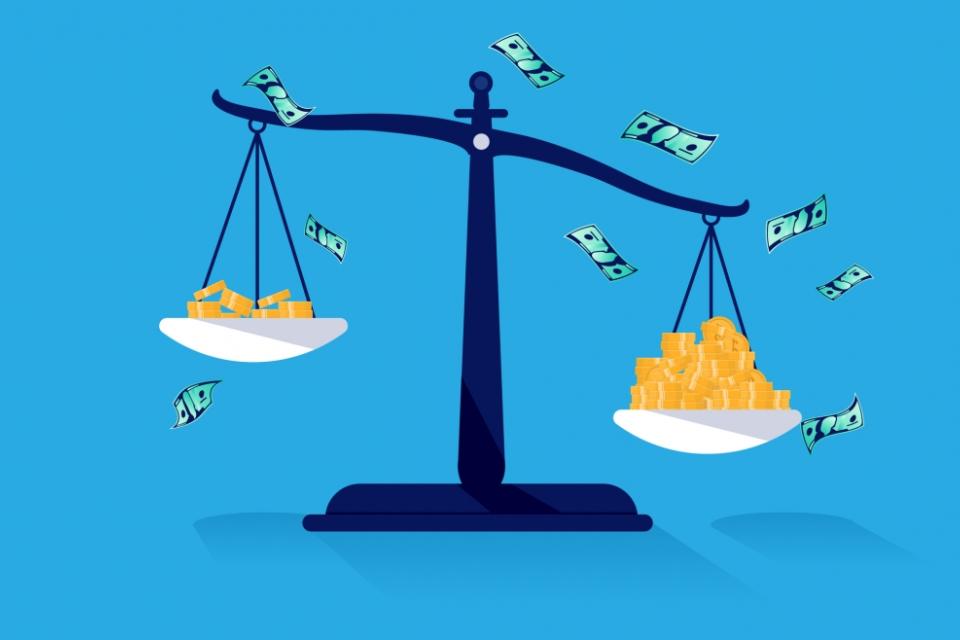Naming Is Not Shaming? Firms Paying Women Less without Reputation Loss

By Henrich R. Greve, Professor of Entrepreneurship, INSEAD
(Editor's Note: This commentary originally appeared in Professor Greve's Organizational Musings blog on October 10, 2022. We appreciate his permission to republish his commentary about our faculty research.)
Gender pay gap disparity—paying women less than men for comparable work—is widespread and unfair, and much attention is given to how to remove it. Perhaps the most prominent option is to require pay gap disclosure, so that firms paying women less will be revealed and their reputation harmed. The idea is of course that two things will happen—firms will act to improve their reputation through paying women more, and female job applicants are warned and can stay away from these firms until conditions improve.
The U.S. has been reluctant to mandate transparency, but thanks to pay transparency laws elsewhere, we now know more about its effects. In a recent publication in Administrative Science Quarterly, Associate Professor Amanda Sharkey of Arizona State University, and Associate Professor Elizabeth Pontikes and Professor Greta Hsu, both of the UC Davis Graduate School of Management, studied the effects of mandated publication of the gender pay gap in the United Kingdom.
One piece of good news: firms with pay parity received a temporary improvement in employee evaluations when that information was made public. One piece of bad news: that was the only good news. In particular, firms with pay disparity showed no observable short- or long-term decline in employee evaluations, and hence suffered no reputation loss either.
Failing to find an effect was not a result of data problems; nor was it inconsequential. The authors were analyzing Glassdoor evaluations, which are reviews of each firm anonymously posted by its employees. Each evaluation is accurately timed, so it is easy to match the evaluation with the disclosure of the pay gap. The evaluations are consequential because many potential job seekers check Glassdoor reviews, both the numeric evaluations and the written text.
This is a puzzle, and Sharkey, Pontikes, and Hsu proceeded to look for explanations. Interestingly, although some explanations could be excluded, not a single explanation could account for the failure to shame the firms with a pay gap. Part of the reason is that there are simply too many possible explanations, and they probably work together to make this happen. Because they add up to letting firms get away with unfair payment, it is worthwhile listing three explanations as warnings.
- Pay attention! There is some evidence that employees don’t fully pay attention to the pay gap when assessing their own workplace. Extending that observation, it is fair to wonder whether potential job applicants pay enough attention too. Paying attention is the first protection against walking into a trap.
- Interpret information! There is some evidence that employees react less when the pay gap is obscured by job heterogeneity. That is natural, but also discouraging, because more deliberate and conscious interpretation would usually help them understand that they are in a pay disparity trap.
- Act on interpretation! There is some evidence of resignation, with employees not reacting to the pay gap because they have become used to it. That is exactly how traps work—people do not escape from them.
The reason to list these warnings is that it is hard to think of any policy to reduce the pay gap disparity that would be more effective than disclosure. Organizations constantly need to recruit new employees, and they always worry about their ability to attract the best. Obviously so, because there is another pay gap that is much more logical and beneficial for the organization than the gender pay gap. There are few jobs in which the pay gap between the most and the least productive employee is so great that the organization does not care about employee quality. The most productive employee is usually so much better for so little extra pay that having all the potential stars apply—male and female—is a great benefit for the organization.
If employees and job applicants pay attention, interpret information, and act on the interpretation, pay disparity would simply be too costly for the organization. Perhaps they will gradually learn to do so.
Sharkey, Amanda, Elizabeth Pontikes and Greta Hsu. 2022. "The Impact of Mandated Pay Gap Transparency on Firms’ Reputations as Employers." Administrative Science Quarterly, forthcoming


